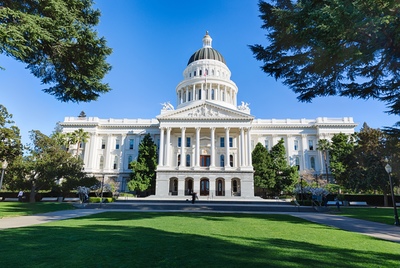
Compliance
Compliance Deadlines for Lobbying and Campaign Finance in March 2026
March 3, 2026 | Megan Zeiss, Vinnie Cannamela
September 2, 2025 | Lauren Calhoun

Key Takeaways:
Campaign finance is more than just money. It’s a crucial tool for donors to show support for their preferred candidates. From the ads you see on TV to the mailers flooding your mailbox, the funds raised and spent during election seasons shape decisions that affect all of us. But with vast sums of money at play, it's no surprise that campaign finance is heavily regulated to ensure transparency and minimize corruption.
Despite heavy regulation, people tend to view money in politics negatively. This is often due to scandals like the Ohio House Bill 6 bailout scandal, where $60 million in bribes were used to sway politicians to bailout FirstEnergy; or the recent NYC bribery case, in which Mayor Eric Adams was indicted on federal bribery and campaign finance charges for illegal foreign donations and misuse of public funds, though the case was dismissed in 2025. These high-profile cases highlight why campaign finance disclosure is crucial for promoting transparency in the political process, identifying corruption, and increasing fairness and trust in public institutions.
So, you're lobbying and you’re wondering if you can make political contributions. The simplest advice is this: avoid making contributions in your capacity as a lobbyist. However, even if you have no plans to donate, it’s still essential to understand the campaign finance rules and reporting requirements in your jurisdiction. An accidental violation can carry serious consequences, and in court, “I didn’t know” is rarely a successful defense.
You may be asking yourself what counts as a campaign contribution or expense. Let's look at some examples.
Hosting a fundraising event may be considered an in-kind contribution, especially if costs are covered by the host.
Venues, catering, entertainment, and staff time may all count as reportable expenses.
Some states, like North Carolina, prohibit lobbyist fundraising in addition to directly contributing to a candidate campaign.
If you pay for a candidate or campaign official’s travel or hotel stay, it's likely a reportable contribution.
Personal gifts related to campaign events may also trigger FEC scrutiny.
In addition, these could be considered impermissible gifts under the state’s public official ethics laws.
This is more for our nonprofit friends who may invite a candidate to speak at an event. While not directly a campaign contribution the IRS may see this as engaging in political activity.
Nonprofits that violate the ban on political activity could face penalties ranging from fines to the entity and its staff to losing its coveted non-profit status.
Lobbyists can generally volunteer for a political campaign without providing an in-kind contribution (although the activity may need to be reported).
However, providing paid volunteers or a coordinated campaign for volunteers may trigger a reportable contribution.
Specific definitions of commonly regulated contributions vary by state and are regulated differently by each state but below outlines a basic definition and an example in a state.
Basic definition: A donation of money, goods, or services given personally or through a political committee by a registered lobbyist to support a candidate’s campaign for elected office.
Example: A registered lobbyist donates $1,000 to a New York State Senate candidate. New York allows such contributions but sets specific limits based on office and district size. The lobbyist must disclose this in their bi-monthly reports.
Basic definition: A donation of money, goods, or services made by a registered lobbyist to a PAC, which is an organization formed to raise and spend funds to influence elections or support specific candidates, issues, or legislation.
Example: In California a lobbyist gives $10,001 to a state trade association political committee. That lobbyist is now a major donor committee and required to file campaign contribution reports as well as report contributions on their lobbyist reports.
Basic definition: Individual donations collected and delivered by a registered lobbyist (or a lobbying entity) to a candidate, campaign, or political committee, often as a way to show collective support.
Example: For federal lobbyists, if a lobbyist hosts a fundraiser and collects $25,000 in checks from different donors to give to a candidate, that full amount is considered a bundled contribution. Even if the money comes from other people, the lobbyist is treated as the one who “bundled” it because they either forwarded the donations or were credited with raising them.
Basic definition: A non-monetary donation of goods or services provided by a registered lobbyist to a candidate, campaign, officeholder, or political committee to support their political efforts.
Example: In Texas, if a company donates free use of a venue or offers to cater free of charge for a campaign fundraiser for a candidate running for the Texas House of Representatives. This non-cash donation of goods or services made to benefit a candidate, officeholder, or political committee. This contribution is required to be disclosed in the lobbyist disclosure report.
Basic definition: A campaign donation made in someone else’s name to intentionally or unintentionally conceal the true source of the funds which is often illegal, especially when used by a lobbyist or their client to avoid contribution limits or disclosure requirements.
Example: An employee of a company pays for a contribution through WinRed or ActBlue with a personal card and is reimbursed by an employer. The individual employee is listed as the donor on public disclosure reports but the employer is the real donor because they reimbursed the employee for their contribution. You can not give contributions in someone else's name.
New to campaign finance? To explore more on campaign finance terms and definitions, check out our article on common terms in campaign finance. Additionally, come back next week when we dive into common (and some not-so-common) important regulations governing contributions made by lobbyists.
Keeping up with rules, deadlines, and often confusing requirements is a daunting prospect for teams of all sizes. Let us manage your federal, state, and local registration and reporting responsibilities, or manage your Campaign Finance program. Read more about our Compliance Services here, or get in touch here.

March 3, 2026 | Megan Zeiss, Vinnie Cannamela

February 20, 2026 | Bradley Coffey
-328a36-400px.jpg)
February 20, 2026 | Kelly Cox